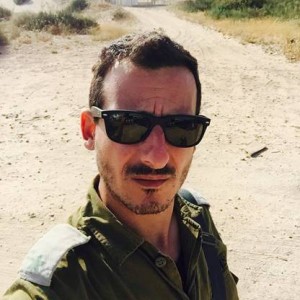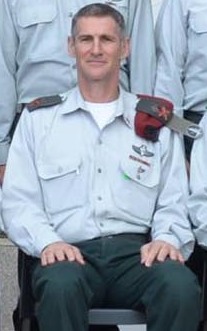 Rabbi Rachel Miller Solomin is a Jewish educator, writer, life coach, and mother living and
working in California’s Silicon Valley. She was ordained from the Ziegler School of Rabbinic Studies in
2001.
Rabbi Rachel Miller Solomin is a Jewish educator, writer, life coach, and mother living and
working in California’s Silicon Valley. She was ordained from the Ziegler School of Rabbinic Studies in
2001.
Several years ago, on a bright California Sunday, I had a car accident involving pedestrians. By maneuvering
my car, I had avoided hitting them head-on. The family involved incurred only minor physical damages, but they were
traumatized.
Since then, I have been struck by the relationship of these events to the Jewish laws of monetary damages. This
week’s Torah portion, Emor, contains the biblical origins of these laws: “If anyone maims his fellow, as he has
done so shall it be done to him: fracture for fracture, eye for eye,
tooth for tooth. The injury he inflicted on another shall be inflicted on him” (Leviticus 24:19-20, my
emphasis). This formula, known variously as the lex talionis, reciprocal or retributive justice, assigns
penalties appropriate to the injury. In the Torah, “an eye for an eye” is intended to limit consequences to
proportional justice rather than permitting vengeance killings in response to minor injuries. When the accident
happened, I ran out of my car and collapsed, sobbing apologies, beside scared, crying children in their stroller.
The children’s mother suggested I move away from the kids -- ”If my husband sees you, he’ll kill you.”
 Rabbi Rachel Miller Solomin is a Jewish educator, writer, life coach, and mother living and
working in California’s Silicon Valley. She was ordained from the Ziegler School of Rabbinic Studies in
2001.
Rabbi Rachel Miller Solomin is a Jewish educator, writer, life coach, and mother living and
working in California’s Silicon Valley. She was ordained from the Ziegler School of Rabbinic Studies in
2001.



 "A thoughtful and compelling analysis of the
Israeli-Palestinian conundrum by one of Israel's most astute and veteran
political and security analysts."
"A thoughtful and compelling analysis of the
Israeli-Palestinian conundrum by one of Israel's most astute and veteran
political and security analysts."
 Shalom Achshav's new Public Action director, Yotam Yaakoba (second from the right) set up two
kiosks in Tel Aviv today to hand out Peace Now's Shalom flags for Yom Haatzmaut, Israel's 68th
Independence day, which will be celebrated on Thursday May 12th. In the week to come, Shalom Achshav will be
handing out flags in other locations around Israel.
Shalom Achshav's new Public Action director, Yotam Yaakoba (second from the right) set up two
kiosks in Tel Aviv today to hand out Peace Now's Shalom flags for Yom Haatzmaut, Israel's 68th
Independence day, which will be celebrated on Thursday May 12th. In the week to come, Shalom Achshav will be
handing out flags in other locations around Israel.